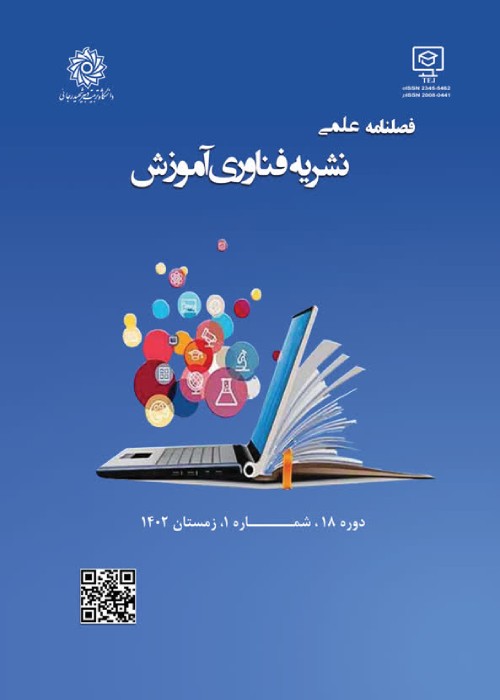Explaining principles governing desirable lesson study practice: Case study of Mazandaran Province
The experience of some countries, including Japan, shows that opening the classroom and the whole educational process from design to evaluation to teachers and creating an educational group creates a cycle of gradual improvement of the educational process in the classroom and it brings positive effects. One of these methods that has emerged from the heart of the school and the classroom in the Japanese education system is lesson study. Lesson study is the most important factor in educational performance to develop the teaching profession. Curriculum research is a research circle in which teachers research curriculum topics in groups. In this advanced model, teachers and professionals work together. The assessment team (teachers) focus all their efforts on educating students in the classroom to grow and refine the subject matter. Through lesson study, the teacher communicates with the practice of research to base the practice of teaching on thought and action. Thoughtful and research-based practice actually introduces a set of skills and abilities that put a person in a critical position to solve problems and issues. This study aimed to explain principles governing desirable lesson study practice in mathematics in Mazandaran Province’s Educational Office.
The research method was qualitative and of phenomenological type. The statistical population of this study included all experts in lesson study. 16 participants were selected through Snowball sampling. The sample size was determined by theoretical saturation. The data collection instrument in this study was semi-structured interview and th validity of the data was assessed and verified by evaluating the participants. The data resulted from interviews were analyzed through categorization method.
Totally, 5 major categories were extracted from the interviews, including human aspect (creativity, responsibility and being open to criticism), structural aspect (technological equipment, supervision, programs, load of teacher work, ratio of the number of teacher to the student and applying results), cultural aspect (teamwork, school culture, belief and commitment to impact of lesson study, family cooperation, Researchers' spirit of teacher and principlas, teacher cooperation place of competition), managerial aspect (support, scoring process, authorities’ support, provision of budget, support of other school factors and time) and pedagogical aspect (exchange of useful educational experiences, workshops, new teaching styles, provincial team of lesson study, educational content, conversion of quantitative evaluation to descriptive and educational design).
This study was conducted with the aim of explaining the principles governing the optimal implementation of mathematics studies in primary schools of education in Mazandaran province. The categories extracted from the interviews include the human aspect, the structural aspect, the cultural aspect, the managerial aspect and the teaching-learning aspect. The human aspect includes the variables of creativity, responsibility and criticism. The structural aspect includes the variables of technological equipment, supervision, programs, teacher workload, teacher to student ratio and application of results. The cultural aspects include the variables of teamwork, school culture, belief and commitment to the impact of study, family cooperation, research spirit of teachers and principals, teacher cooperation instead of competition. The managerial aspect includes support, scoring process, official support, funding, support of other school and time executives. The teaching-learning aspect includes variables of conversion of useful educational experiences, workshops, new teaching styles, provincial study team, educational content, conversion of quantitative evaluation into descriptive and educational desig.
- حق عضویت دریافتی صرف حمایت از نشریات عضو و نگهداری، تکمیل و توسعه مگیران میشود.
- پرداخت حق اشتراک و دانلود مقالات اجازه بازنشر آن در سایر رسانههای چاپی و دیجیتال را به کاربر نمیدهد.




